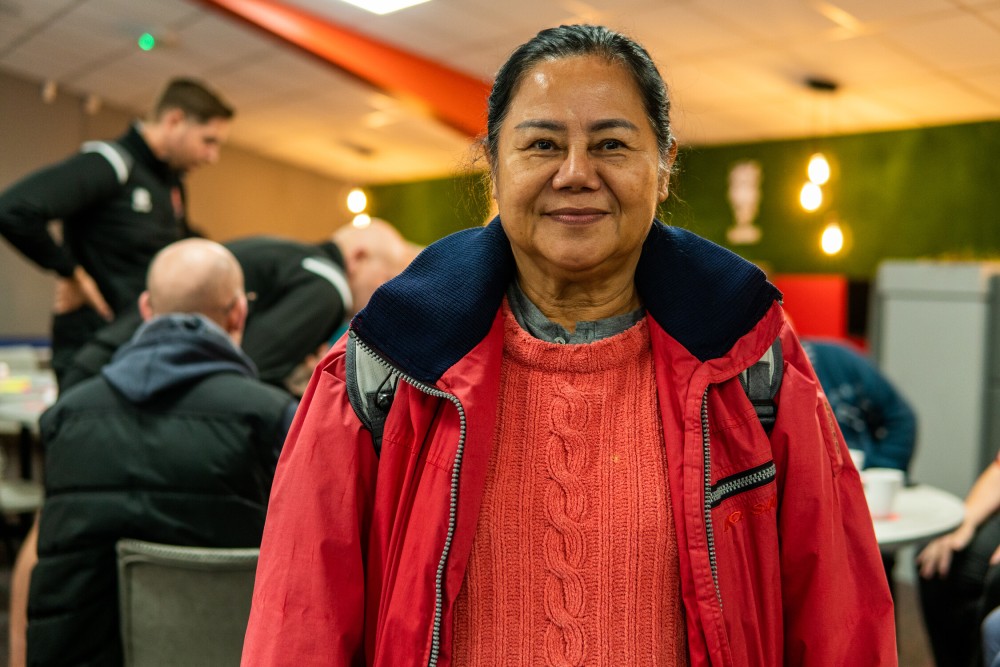Accessible digital technology for wellbeing
Guest Blogger | 15 Apr 2024Guest blog: Written by PMAC
We’re a world obsessed with technology. It’s everywhere, and it can’t really be escaped anymore. Whether it’s your toddler or grandma, they’re surrounded by different types of technology, and while this has its downfalls, access to such great tech has its many benefits.
 Since the creation of social media, forums, videos, and virtual meeting spaces, you can now connect and socialise with someone on the other side of the world in real-time.
Since the creation of social media, forums, videos, and virtual meeting spaces, you can now connect and socialise with someone on the other side of the world in real-time.
Vital support such as mental health counselling and even speaking with a GP can now be accomplished from the comfort of a sofa, bed, or even while on holiday.
This easy connectivity is particularly beneficial when it comes to mental health support, as it provides access to online communities where empathy, understanding, and mutual support thrive.
How digital technology can connect people to a community
Virtual support groups, mental health apps, and online forums exemplify how digital technology can serve as a lifeline, connecting individuals to communities that resonate with their experiences and challenges. For many, these digital spaces offer the anonymity and safety needed to discuss their feelings and seek advice openly.
These digital platforms can cultivate a wonderful sense of belonging, community and safety. Community groups and forums, even some influencers, offer a space where individuals feel seen, heard, and understood.
The shared experiences within these communities can validate feelings and encourage positive steps towards well-being. Hearing stories of positive change can help others see the light at the end of a very dark tunnel and possibly even save a life.
Despite being between strangers, these digital connections are vital for daily support and motivation, reminding individuals that they are not alone in their mental and emotional wellbeing journeys.
Digital technology and access to modern healthcare
It’s not just the community aspect that comes with technology; it’s the wealth of resources it holds. With just a quick search, those in need can find videos, podcasts, eBooks, one-pagers, and even have a free chat with a trained crisis counsellor. These resources can be a safety device for people on long waiting lists or not yet ready to seek face-to-face support.
Telehealth services have emerged as a vital component, offering remote consultations with healthcare professionals via video, phone, or messaging. You can have appointments with your GP via video call, have CBT (cognitive behavioural therapy) over the phone, or request a prescription via text message.
This innovation has proved invaluable, especially for those in remote areas, those with mobility challenges, or those with specific mental health conditions, as it ensures that high-quality healthcare is just a few clicks away.
The anonymity and privacy offered by digital platforms can encourage more people to seek help for mental health issues, breaking down traditional barriers to treatment. Men, for example, who are known to be less likely to seek mental health support, can use telehealth services to keep their anonymity until they’re ready to speak out.
 Over the past couple of years, especially since the pandemic, mobile health apps such as Headspace and wearable technology like smartwatches have also played a critical role in promoting well-being.
Over the past couple of years, especially since the pandemic, mobile health apps such as Headspace and wearable technology like smartwatches have also played a critical role in promoting well-being.
From reminders to take medication, reduce stress and drink water to monitoring physical activity, heart rates and oxygen levels, these simple tools empower individuals to take charge of their health and well-being. These devices are changing the healthcare space by providing tailored wellness advice and giving people a sense of control.
The data they store can also be handy for healthcare professionals, which provides more regular and personalised insights into a patient's health. For example, the Apple Watch can perform an ECG, although there are doubts about how reliable this is.
While Dr Google can’t always be trusted, and it’s vital to raise your concerns with a healthcare professional, access to vast medical information via the internet gives people more understanding and control over their healthcare options.
Why accessible digital technology can improve purpose
The relationship between technology and mental well-being is a highly discussed topic. Plenty of research suggests that our ease of access to so much information through technology is bad for our mental health. While this may be true in some respects, the benefits of technology cannot be ignored.
When tailored to individual needs and interests, technology can significantly enhance one's sense of purpose and well-being.
Firstly, digital platforms offer unprecedented access to communities and resources that were previously hard to reach or non-existent. For those with niche or specialist interests, this means the opportunity to connect with like-minded individuals across the globe, cultivating a sense of belonging and community.
New mums can share their worries, questions and experiences through Facebook groups, and women going through fertility treatment can vent on apps like Peanut. Men who want to seek mental health treatment but don’t want to share that information with others can talk to a mental health professional through BetterHelp.
 These apps that can be accessed through phones, laptops, iPads and even some Smart TVs are bringing isolated people together, which shouldn’t be forgotten.
These apps that can be accessed through phones, laptops, iPads and even some Smart TVs are bringing isolated people together, which shouldn’t be forgotten.
These platforms also help upskill or engage people in their chosen hobbies. Technology now allows you to completely change your career through online skill academies, join virtual choirs, participate in virtual pub quizzes, and have a voice in healthy debates. It opens up everyone to another little world.
All of this can lead to a heightened sense of achievement, self-esteem and personal growth.
Technology is revolutionising healthcare delivery, infusing it with newfound accessibility, tailor-made care, and unmatched efficiency. With each stride in digital innovation, we're forging a path towards a future where every individual, no matter where they are or what challenges they face, can access the highest-quality healthcare and receive the support they need for optimal well-being.
It's a journey scented with hope, promise, and the profound belief that no one should ever be left behind in their pursuit of health and happiness.
About PMAC
PMAC is a UK-based organisation of mental health training professionals, providing psychologically-informed workplace training to businesses in the UK, helping to create a healthier and more productive working environment.
Further resources
- Book Disability Awareness Training for your workplace
- 9 ways to promote accessibility for Global Accessibility Awareness Day 2024
- Blog: Six ways tech can support your mental health and aid anxiety
- Keep up to date with accessibility issues with the AbilityNet newsletter
- Find out more about AbilityNet's free live webinars
AbilityNet provides a range of free services to help disabled people and older people. If you can afford it, please donate to help us support older and disabled people through technology



